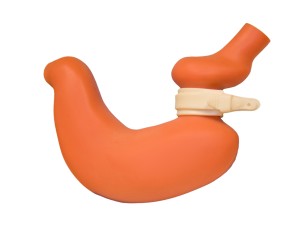

 Bariatric surgery has come under a lot of flak in recent years but one cannot ignore its benefits – especially when it comes to obese patients needing knee surgery. Statistics show that adverse outcomes and post-operative maintenance costs are on the rise in obese patients who undergo following total knee replacement surgery (TKR). But now, thanks to a new computer model-based evaluation, there is strong support for bariatric surgery prior to TKR, in severely obese patients with end-stage osteoarthritis.
Bariatric surgery has come under a lot of flak in recent years but one cannot ignore its benefits – especially when it comes to obese patients needing knee surgery. Statistics show that adverse outcomes and post-operative maintenance costs are on the rise in obese patients who undergo following total knee replacement surgery (TKR). But now, thanks to a new computer model-based evaluation, there is strong support for bariatric surgery prior to TKR, in severely obese patients with end-stage osteoarthritis.
Obesity is a growing epidemic in the United States with almost 30% of Americans falling into the obese category. Obesity is a known risk factor for arthritis, but it is even more of a high risk for bad prognosis post knee-replacement surgery. While knee replacement is a typical treatment for irreversible osteoarthritis, obesity increases the risk for complications. Obese patients are more prone to post-operative infections, delayed wound healing, revisional surgery, and reduced functional outcomes.
As part of their study, the researchers used a computer model to analyze previously published data on TKR, obesity, and bariatric surgery. The researchers took into account the costs and outcomes of two treatment options for patients with morbid obesity and end-state osteoarthritis of the knees. The first treatment option was done without any weight loss. The second treatment option was two years after bariatric surgery.
The researchers then compared the compared the cost and outcomes of both the treatment options.
According to orthopedic surgeon and lead author of the study, Alexander McLawhorn, MD, MBA, the team was well aware that bariatric surgery can help reduce a patient’s excess weight and therefore is an effective treatment for morbid obesity. The team was also cognizant of the fact that bariatric surgery also reduces the burden of co-morbidities, like high blood pressure and diabetes and could play a big role in extending a patient’s life span,”
What they did not know, and wanted to determine was, whether it was cost effective to recommend bariatric surgery to achieve weight loss and improve preoperative health before joint replacement.”
From their research model, the team was able to conclude that when morbidly obese patients undergo bariatric surgery before TKR surgery, they are more likely to enjoy improved quality-of-life (QALY), than obese patients who get TKR surgery done without bariatric surgery and the associated weight loss.
The team also added that the cost necessary for this level of improvement was $13,910 per QALY, which is an amount insurers and the government, are typically willing to pay.
Dr. McLAwhorn adds that the team concluded that successful bariatric surgery performed two years before TKR could be a cost-effective treatment strategy for morbidly obese patients with end-stage arthritis. While there is still a lot be understood about bariatric surgery precisely affects knee osteoarthritis and total knee replacement, the model does what the team set out to do – prove that bariatric surgery brings down the post-operative costs and increases the efficacy of TKR surgery.
The team is hopeful that the results of their study will help surgeons in counseling and convincing morbidly obese patients with knee osteoarthritis, about the advantages of undergoing bariatric surgery to optimize overall health, nutrition and weight prior to knee replacement.
Copyright © www.orthopaedics.win Bone Health All Rights Reserved